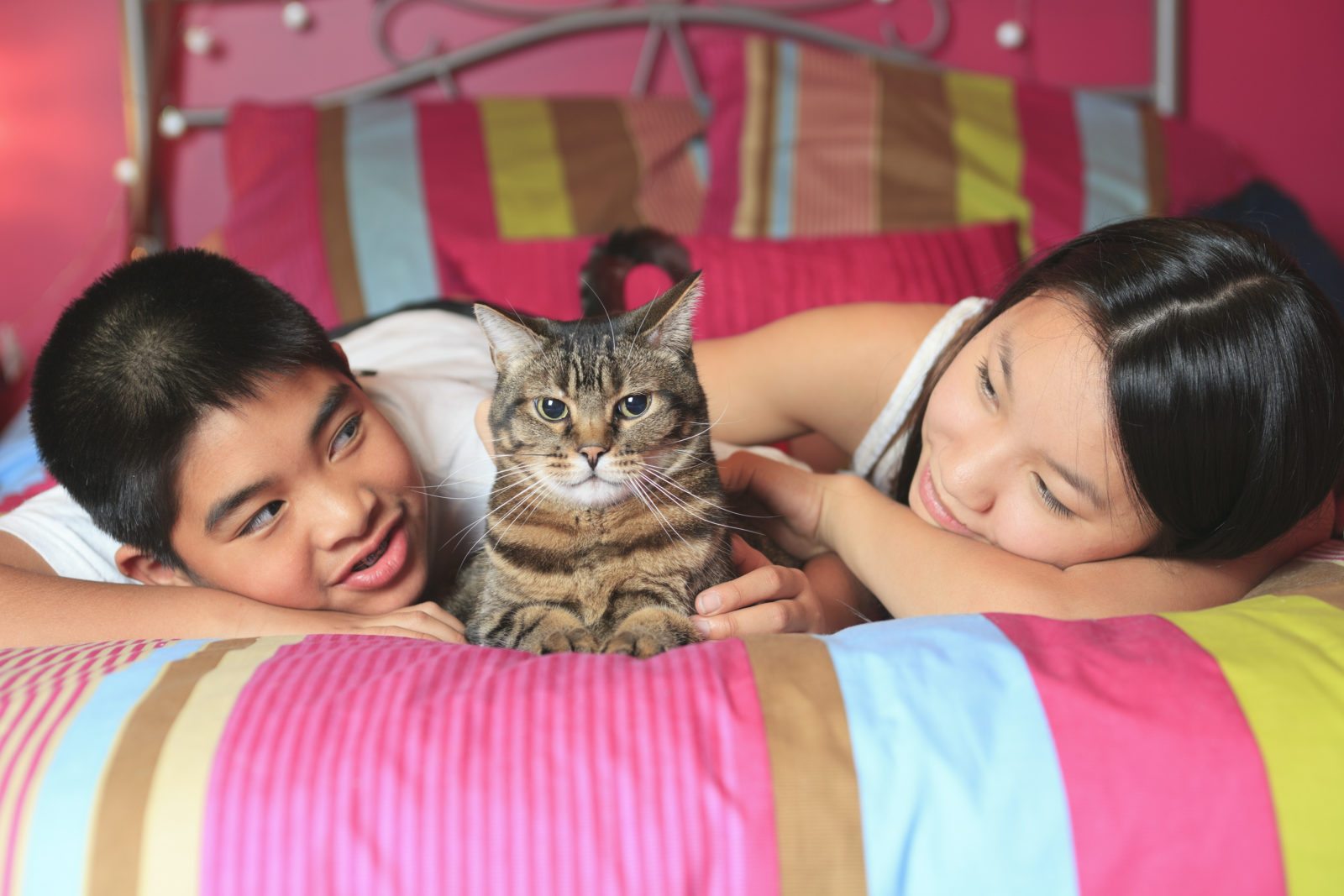Pet Loss Counseling
How to take care of yourself, your family, and other pets when you’ve had to say goodbye.
When a person you love dies, it’s natural to feel sorrow, express grief, and expect friends and family to provide understanding and comfort.
Unfortunately, you don’t always get that understanding when a pet dies. Some people still don’t understand how central animals can be in people’s lives, and a few may not get why you’re grieving over “just a pet.”
Members of the family
We know how much pets mean to most people. People love their pets and consider them members of their family. Caregivers often celebrate their pets’ birthdays, confide in their animals and carry pictures of them in their wallets. So when a beloved pet dies, it’s not unusual to feel overwhelmed by the intensity of your sorrow.
Animals provide companionship, acceptance, emotional support, and unconditional love. If you understand and accept this bond between humans and animals, you’ve already taken the first step toward coping with pet loss: knowing that it is okay to grieve when your pet dies.
Finding ways to cope with your loss can bring you closer to the day when memories bring smiles instead of tears.
The grief process
The grief process is as individual as the person, lasting days for one person, years for another. The process typically begins with denial, which offers protection until individuals can realize their loss.
Some caregivers may try bargaining with a higher power, themselves, or even their pet to restore life. Some feel anger, which may be directed at anyone involved with the pet, including family, friends, and veterinarians. Caregivers may also feel guilt about what they did or did not do; they may feel that it is inappropriate for them to be so upset.
After these feelings subside, caregivers may experience true sadness or grief. They may become withdrawn or depressed. Acceptance occurs when they accept the reality of their loss and remember their animal companion with decreasing sadness.
Coping with grief
While grief is a personal experience, you need not face your loss alone. Many forms of support are available, including pet-bereavement counseling services, pet-loss support hotlines, local or online pet-bereavement groups, books, videos, and magazine articles.
Here are a few suggestions to help you cope:
- Acknowledge your grief and give yourself permission to express it.
- Don’t hesitate to reach out to others who can lend a sympathetic ear. Do a little research online and you’ll find hundreds of resources and support groups that may be helpful to you.
- Write about your feelings, either in a journal or a poem, essay, or short story.
- Call your veterinarian to see whether they offer a pet-loss support group or hotline, or can refer you to one.
- Prepare a memorial for your pet.
Children
The loss of a pet may be a child’s first experience with death. The child may blame themself, their parents, or the veterinarian for not saving the pet. And they may feel guilty, depressed, and frightened that others they love may be taken from them.
Trying to protect your child by saying the pet ran away could cause your child to expect the pet’s return and feel betrayed after discovering the truth. Expressing your own grief may reassure your child that sadness is ok and help them work through their feelings.
Seniors
Coping with the loss of a pet can be particularly hard for seniors. Those who live alone may feel a loss of purpose and an immense emptiness. A pet’s death may also trigger painful memories of other losses and remind caregivers of their own mortality. What’s more, the decision to get another pet is complicated by the possibility that the pet may outlive the caregiver and that the decision to get another pet hinges on the person’s physical and financial ability to care for a new pet.
For all these reasons, it’s critical that senior pet owners take immediate steps to cope with their loss and regain a sense of purpose.
If you are a senior, try interacting with friends and family, calling a pet-loss support hotline, even volunteering at a local humane society.
Other pets
Surviving pets may whimper, refuse to eat or drink, and suffer lethargy, especially if they had a close bond with the deceased pet. Even if they were not the best of friends, the changing circumstances and your emotional state may distress them. (However, if your remaining pets continue to act out of sorts, there could actually be a medical problem that requires your veterinarian’s attention.)
Give surviving pets lots of TLC and try to maintain a normal routine. It’s good for them and for you.
Getting another pet
Rushing into this decision isn’t fair to you or your new pet. Each animal has their own unique personality and a new animal cannot replace the one you lost. You’ll know when the time is right to adopt a new pet after giving yourself time to grieve, considering whether you’re ready, and paying close attention to your feelings.
When you’re ready, remember that your local animal shelter or rescue is a great place to find your next special friend.
